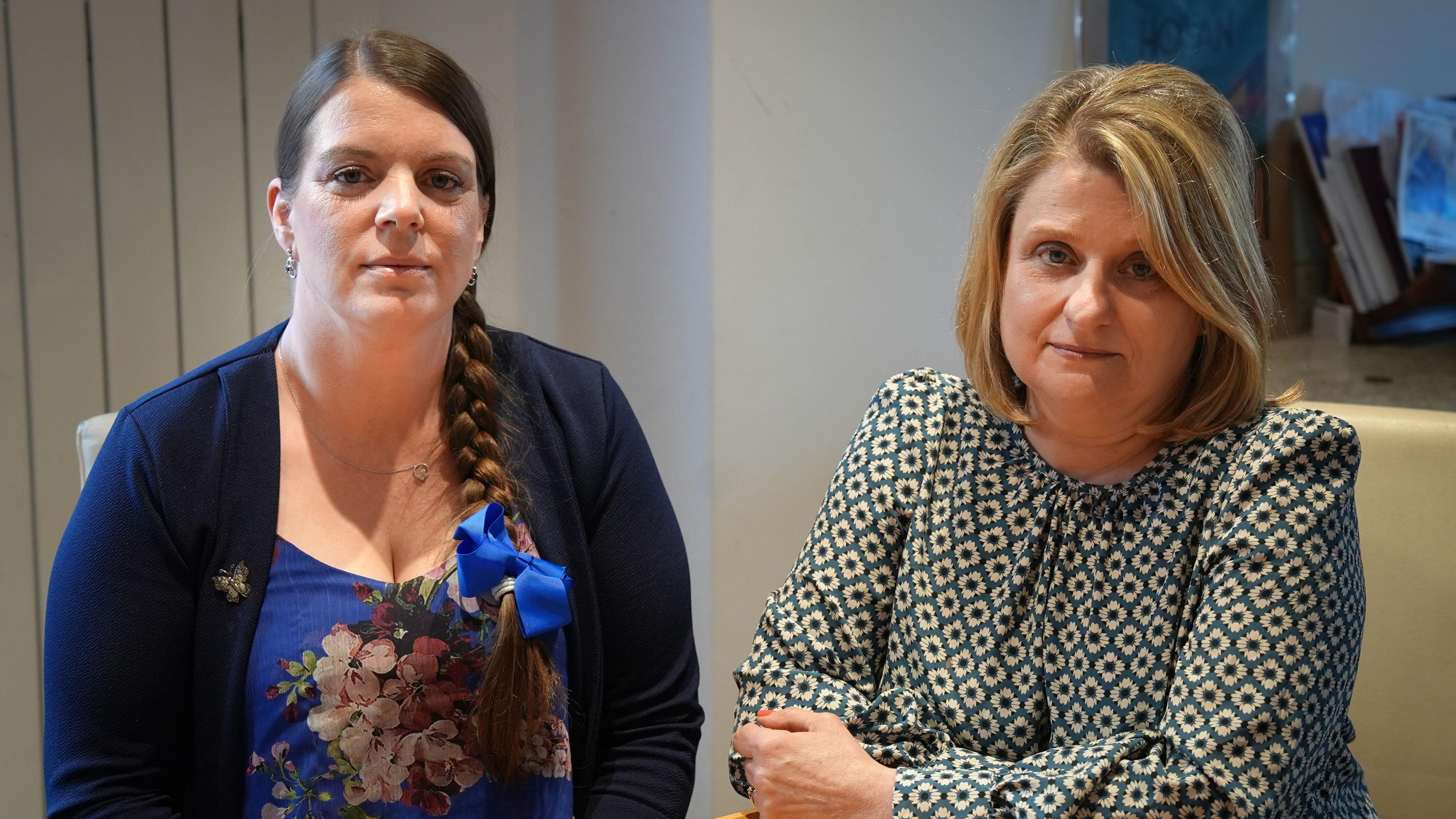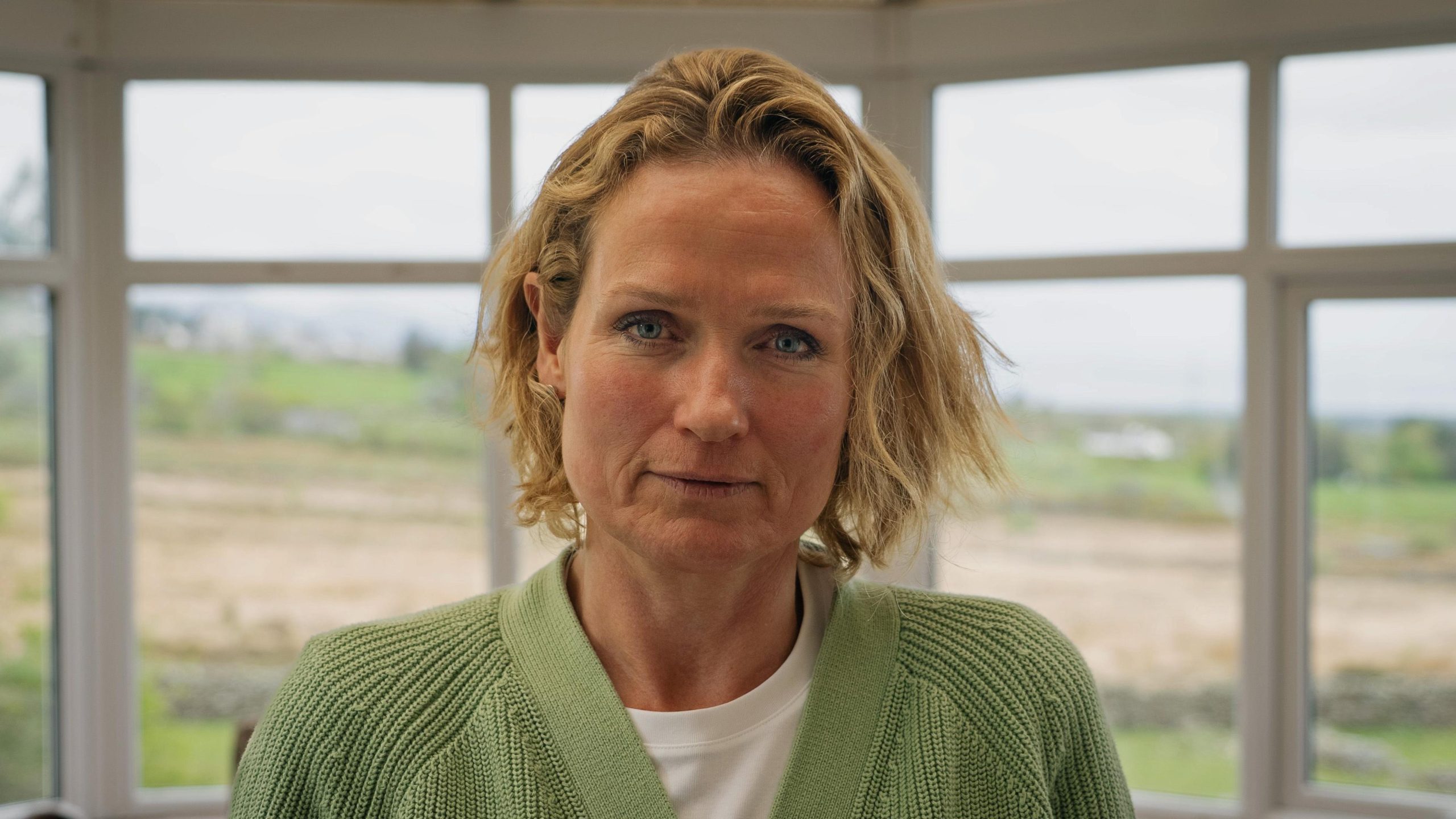People who have committed murder, manslaughter or stalking offences should be forced to live in restricted areas after being released from prison on licence, campaigners have said.
Rhianon Bragg said she felt “trapped” after her stalker was released from prison subject to an exclusion zone, which meant he could not enter the surrounding four counties of her home.
The Ministry of Justice stated that exclusion zones stopped criminals from getting near their targets.
But Ms Bragg is part of a group of victims who say this approach should be “flipped on its head”, with “high risk” former prisoners only able to live, work and travel in specific areas of the UK for the rest of their lives.
Certain specialists have expressed worries that this method might equate to a violation of offenders’ human rights.
Ms Bragg, from Gwynedd,
was stalked and held at gunpoint for eight hours
by her former partner Gareth Wyn Jones in 2019.
Jones was
served a sentence of four and a half years starting in 2020
and subsequently released under license in February 2024.
Serving time on license indicates that an individual is continuing their imprisonment within the community setting, adhering strictly to specific terms and regulations.
Under the terms of Jones’ license, he was prohibited from entering the adjacent four counties around Mrs. Bragg’s residence for a span of five years. However, Mrs. Bragg started feeling increasingly confined.
She stated, ‘We didn’t have true freedom anymore.’
“It may sound like a large area, but the clock was ticking.
“Just simply travelling and worrying about stopping at a service station that he might be there,” she added.
“Being outside the safety zone did feel like a real a risk, and it shouldn’t be like that.”
Ms. Bragg learned not long ago that Jones had passed away.
“The day after I received that information, I struggled to identify my emotions; they were indescribable and unfamiliar. Then it dawned on me—it was liberation,” she stated.
The victims have suffered sufficiently; we ought to ensure everyone can experience liberty.

Emma King stated that she had to “struggle” for a five-mile exclusion zone around her home from the individual responsible for her sister’s death.
Julie Butcher
was killed in 2005 by her former husband
Richard Butcher at his residence in Chisledon, Wiltshire.
The Butcher received a 13-year prison sentence, yet Ms. King mentioned that he returned to the same neighborhood following his release.
“As we are now confined to a limited space, we will always be wary of our surroundings,” stated Ms. King.
She stated that the smallest distance for exclusion zones should be set at 50 miles (80 kilometers), emphasizing that these restrictions ought to be enforced during sentencing to prevent additional suffering for the victims’ families.
Ms. King has teamed up with Carole Gould, who
17
–
year
–
Ellie, his elder daughter, was killed by stabbing.
In 2019, at her residence in Calne, Wiltshire, Thomas Griffiths did this after their partnership concluded.
Following Ms King’s accounts of her experiences, Ms Gould remarked that she felt “appalled.”
“I naively assumed that after Griffiths was released, he wouldn’t be permitted to return to the southwest of England,” Ms. Gould stated. “But listening to what Emma had to share, it seems Griffiths might relocate and reside with his parents, who decided against moving from the region.”
They aren’t considering the anxiety we’re currently experiencing, not to mention the grief, when it comes to figuring out our long-term plans.
Shall we step back or wait and observe how things unfold?
Diana Parkes, whose daughter Joanna Simpson was murdered at their residence in Berkshire back in 2010, has likewise supported the appeals for limited-access areas.
Ms Parkes, who set up the
Joanna Simpson Trust
in her daughter’s name to support children affected by domestic abuse and homicide, said victims were “absolutely terrified” when perpetrators came out of prison.
“Every single victim I have spoken to endorses this feeling that the offender should be in a restricted zone and the victim should be able to carry on their life, because they’ve done nothing wrong,” said Ms Parkes.
“Why should they only be made to feel safe in an exclusion zone?
“I’m fighting like mad until my dying breath to make sure people understand. Particularly the law makers, if they had lost a family member like us, they would really truly think differently.”
‘Human rights breach’
Latest Ministry of Justice data showed 62,821 people were on licence or subject to post release supervision as of September 2024.
Craig Court, a solicitor at Harding Evans, in south Wales, who has represented both prisoners and victims of abuse, said introducing restricted zones in which offenders could live and work would pose a “real risk” of breaching the Human Rights Act 1998.
He said the act had played a significant role in shaping how licence conditions were applied to offenders.
“Victims’ movements have appropriately brought attention to the necessity of implementing stricter criteria to safeguard their safety and mental health,” stated Mr. Court.
Although I concur that stringent measures are essential, particularly when there’s an ongoing danger of harm, the legislation mandates that all restrictions—like barring offenders from specific locations—must adhere to both Article 5 [the right to liberty] and Article 8 [the right to privacy and family life] of the European Convention on Human Rights.
Mr. Court stated that these provisions did not prevent restrictive measures; however, they mandated that such restrictions must be proportional, essential, and based on a thorough evaluation of the continuous risks involved.
He stated that the objective was to safeguard the requirements of victims without compromising the basic rights of offenders.
“As the law currently stands, confining an offender to a particular area or restricting an offender from leaving a defined area runs the real risk of breaching both Articles 5 and or 8,” he added.
Ms. Gould stated that she believed the focus should be “turned upside down.”
“It’s all about the perpetrators’ human rights and not ours, and that’s so wrong,” she said.
“The radius should be put on them. So we know where they are and we have the freedom of the UK.”
A representative from the Ministry of Justice stated: “It is crucial that victims experience safety, hence individuals serving their sentence outside prison under certain conditions will be returned to custody if they violate any regulations.”
They must adhere to stringent rules including curfews and restricted areas that stop them from getting close to their targets, along with limitations on using phones and the internet.
If these issues resonate with you, you can discover information about organizations that offer assistance through the provided links.
LinksToday.onlineAction Line.
- ‘The experience of being stalked was more distressing than being threatened with a firearm.’
- Red flags missed in neo-Nazi stalker, say victims
- Additional inmates released prematurely to alleviate prison overcrowding

